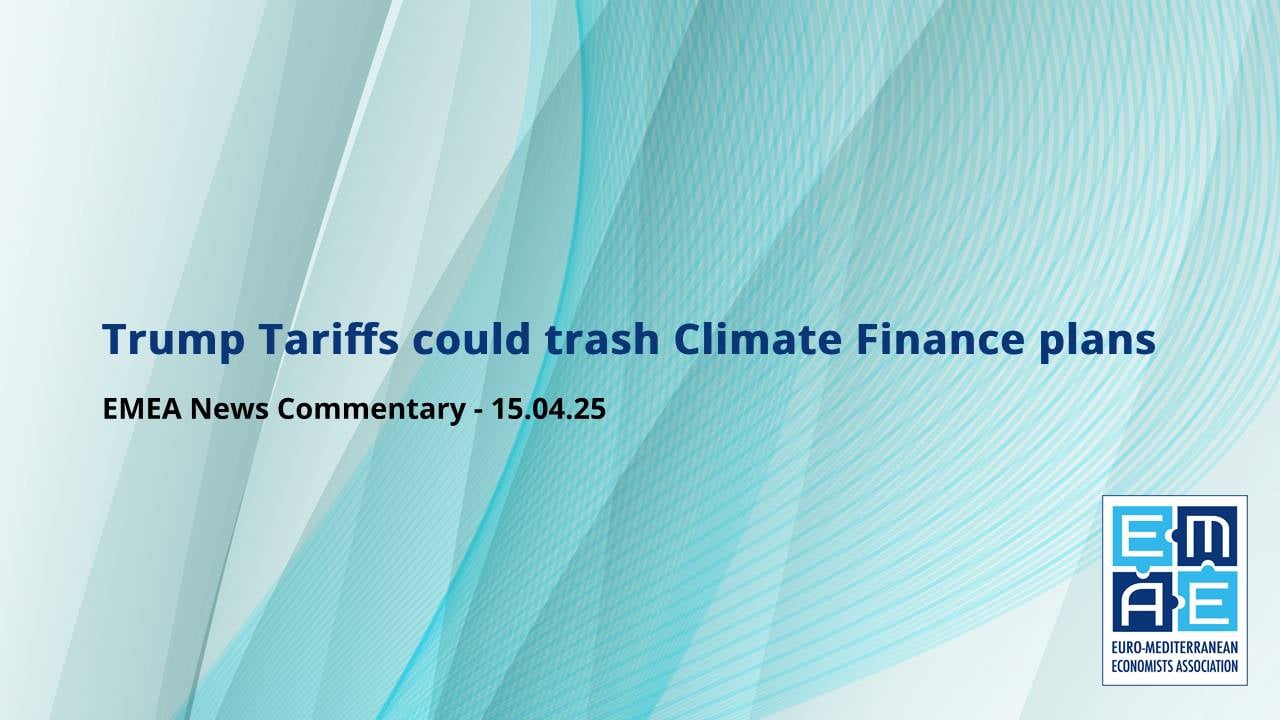The COP28 UN Climate Summit in Dubai has concluded with an ‘historic’ deal to transition from fossil fuels. It’s a concerted bid to hit global zero emission targets by 2050, the Financial Times has reported.
Despite the agreement being enthusiastically endorsed by the COP28 President, Sultan al-Jaber – amid praise from the US and EU – it has come in for strong criticism from 39 small island nations. They accused the presidency of “ramming it through” without their support.
For the move away from fossil fuels to be successful, countries will be required to set “ambitious, economy-wide” emission reduction targets – covering all greenhouse gases – with the aim of limiting global warming to 1.5˚C, over the next two years.
Nevertheless, the final text stressed that targets should be set “in light of different national circumstances,” recognising that poorer countries could find it more challenging to reduce emissions than wealthier nations.
The FT reported that global emissions were “rising inexorably” and were estimated to grow by a further two per cent this year. To stay on track with the maximum 1.5˚C increase target, emissions would need to be almost halved by 2030. Even if countries lived up to all their promises to date, the planet temperature was on course to rise by up to 2.9˚C above pre-industrial levels.
A cause for optimism
The United States’ special climate envoy, John Kerry, said the agreement was a cause for “optimism” and sent a “very strong message to the world”. But he added: “Many people would have liked clear language about the need to begin peaking and reducing fossil fuels in this critical decade. But we know this [agreement] was a compromise between many parties.”
Dan Jørgensen, Denmark’s minister for development co-operation and global climate policy, who led the much vaunted “global stock-take” for COP28, described the agreement as being “very, very good”.
He said: “What we’re basically saying is the way you make your living now . . . you need to change because we’re moving away fossils. Fossils is not the future. Did we solve all problems? Of course not.”
Whilst welcoming the deal, Rachel Cleetus of the Union of Concerned Scientists, an advocacy group comprising more than 200 scientists and researchers, said the agreement was “sorely lacking” on the business of financing the shift away from fossil fuels – especially amongst poorer countries. “We won’t get to where we need to without the financing,” she argued.
“We have set the world in the right direction”
To the surprise of some, at the Summit’s conclusion, Al Jaber declared to a standing ovation: “We have language on fossil fuels in our final agreement for the first time ever. We have set the world in the right direction.”
In response, Anna Rasmussen, chief negotiator for the Alliance of Small Island States, a group of nations vulnerable to climate change, said: “We are a little confused about what just happened. It seems that you gavelled the decisions and the small island developing states were not in the room.”
She observed that “the course correction” that was needed in the agreement had not been secured, warning of a “litany of loopholes” in the text. “We have made an incremental advancement over business as usual, when what we really needed is an exponential step change in our actions and support,” she said.
As reported by Bloomberg, she also complained that the text’s focus on carbon capture and storage was “a backward step and could be a licence for countries to continue burning hydrocarbons.” Transition fuels would also be seen by many as an endorsement for the long-term use of natural gas.
Contentious role of transitional fuels
Dubbed the UAE Consensus, the agreement “called on parties to contribute” to take actions. This included “transitioning away from fossil fuels in energy systems, in a just, orderly and equitable manner, accelerating action in this critical decade, so as to achieve net zero by 2050 in keeping with the science”.
The FT said the accord also highlighted a role for “transitional fuels”, which was “likely to be contentious as some countries and climate experts argue it supports continued use of gas.”
The agreement also called for a tripling of global renewable energy capacity by 2030 and “for countries to accelerate the development of low-emissions technologies. including nuclear, low-carbon hydrogen and carbon capture and storage.”
But it was reported that some developing countries had criticised “the watering down of language on financing.” Poorer nations had also pressed for wealthier countries to be the fastest at cutting emissions, given that, historically, they were the most prolific greenhouse gas emitters.
Bloomberg reported that the deal Al Jaber had brokered was “strong enough for the US and EU on the need to cut fossil fuel use but had kept Saudi Arabia and other oil producers “on board.”
But he warned that an agreement was only as good as its implementation. “We are what we do, not what we say. We must take the steps necessary to turn this agreement into tangible actions,” he said.
Breaking new ground
According to the Bloomberg narrative, although the outcome had fallen short of the specific phasing out of fossil fuels that most countries wanted, it had broken new ground. “No previous COP text has mentioned moving away from oil and gas, the fuels that have underpinned the global economy for decades,” the report observed.
Just how quickly the accord would “become a reality won’t be decided by the diplomatic horse-trading that clinched today’s deal, but by investors, consumers and national governments,” it said, adding that the Dubai Summit had signalled “an important marker in the global direction of travel towards a low-carbon energy system.”
But the pact had left room “for burning natural gas as part of the transition to clean energy.”
COP 28 – a turning point
According to Germany’s climate envoy, Jennifer Morgan, the wording of the language which pushed for a decline in fossil fuel usage would “send a signal to investors about the future of energy markets.” Investors needed to understand that renewable energy was now the long-term future.
“Investing in fossil fuels is a stranded asset,” she asserted. “This COP is one of those key turning points and there haven’t been that many of those.”
The “last-minute deal” was seen as a diplomatic win for the UAE and Al Jaber. He had managed to find consensus, despite “Saudi Arabia and the Organisation of Petroleum Exporting Countries (OPEC) leading a rearguard action against any attempt to include a fossil fuel phase out in the text.”
And whilst the final language had been “watered down to reflect their concerns, ultimately the coalition of oil producers was left too isolated to resist.”
Professor Myles Allen of Oxford University said: “The much-criticised UAE Presidency has pulled this off. Everyone seemed ready to write COP28 off just 24 hours ago, you have to hand it to them.”
The first “global stocktake”
Meanwhile, the Carbon Brief website proclaimed that it had been “the first time such an agreement has been reached in 28 years of international climate negotiations.”
The commitment was included in the first “global stocktake” of how countries could accelerate action to meet the goals of the landmark Paris Agreement. The stocktake is to be a five yearly process, designed to keep checks against the Paris goals and inform the next round of national climate pledges, otherwise known as nationally determined contributions (NDCs).
Carbon Brief, which has provided in-depth analysis of all the key outcomes in Dubai, did recognise that many countries had “walked away from the talks, frustrated at the lack of a clear call for a fossil fuel phase out this decade.”
Separately, it was also reported that talks on a new UN controlled carbon offsets market had broken down, with the EU and some Latin American countries pushing for stricter standards.
Countries reach ‘historic’ COP28 deal to transition from fossil fuels (ft.com)
COP28 Latest: Climate Talks End With Deal on Transition Away From Fossil Fuels – Bloomberg
COP28: Key outcomes agreed at the UN climate talks in Dubai – Carbon Brief





